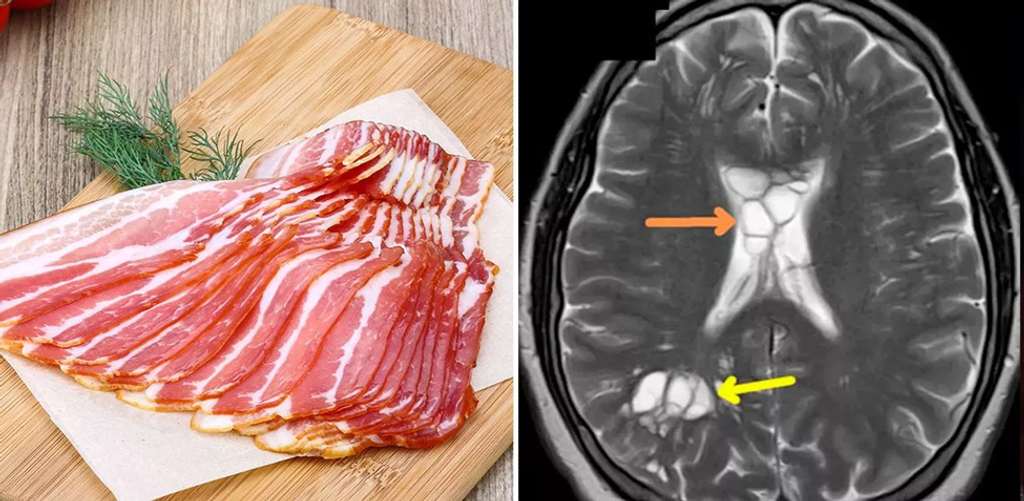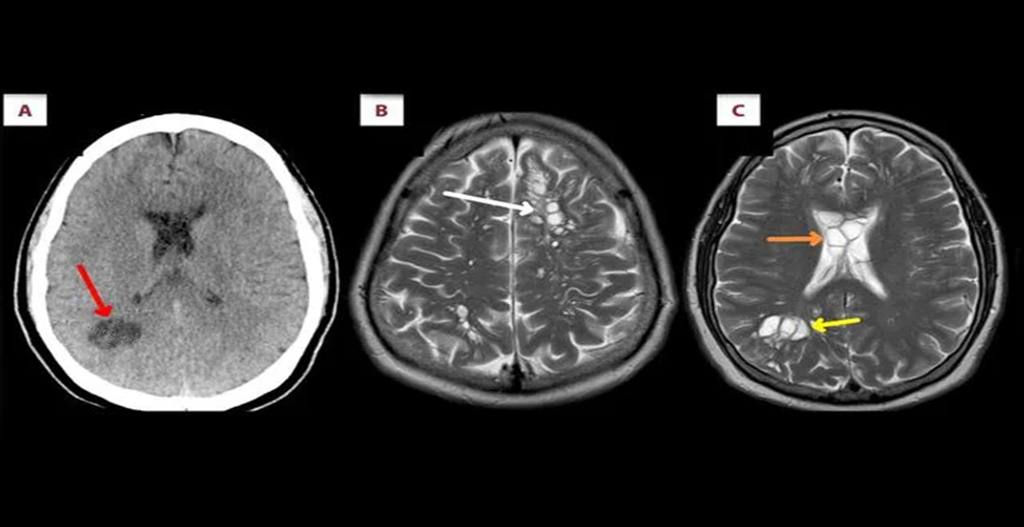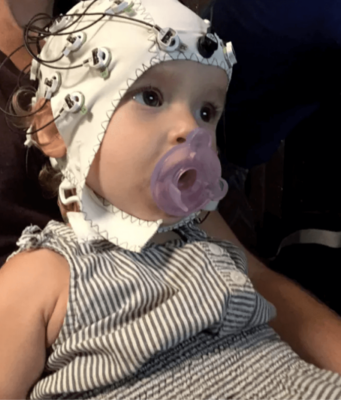In a shocking medical revelation, scientists have identified a distressing case where a 52-year-old man developed severe migraines due to consuming undercooked bacon, leading to a rare pig tapeworm infection in his brain. The anonymous individual, known for his fondness for “soft bacon,” experienced escalating headaches over four months before seeking medical attention in Florida. Upon undergoing scans, doctors discovered fluid-filled sacs in his brain, a condition diagnosed as neurocysticercosis caused by Taenia solium larvae. This diagnosis puzzled medical professionals, as the man had not traveled to high-risk areas and lived in a modern, sanitary environment with no apparent exposure to contaminated sources.
Neurocysticercosis: Rare Case Raises Concerns

Dr. Eamonn Byrnes of Orlando Regional Medical Centre emphasized the rarity of such cases outside traditional risk zones, highlighting the potential implications for public health. He stressed the importance of thorough cooking to eliminate any risk of contracting neurocysticercosis, a condition more commonly associated with regions lacking proper sanitation and where free-ranging pigs are prevalent.
Neurocysticercosis: A Silent Threat

Credit: American Journal of Case Reports
Neurocysticercosis, a form of cysticercosis, is typically transmitted through the accidental ingestion of tapeworm eggs present in contaminated feces or undercooked pork. While more prevalent in regions like South America, Asia, and Africa, this case underscores the need for awareness even in areas where such infections are “very rare.”
Medical Mystery Unraveled
The man’s symptoms, initially attributed to migraines, worsened over time, prompting further medical investigation. Although the initial suspicion leaned towards a genetic condition, subsequent tests confirmed the presence of cysticercosis, ruling out the need for surgical intervention in favor of medication.
Treatment involved a combination of dexamethasone and albendazole, which successfully reduced the size of brain lesions and alleviated the intensity of headaches. This case serves as a stark reminder for medical professionals to consider atypical causes for neurological conditions, particularly when symptoms deviate from the norm.
Similar Case
This alarming incident parallels a recent case in Australia where surgeons extracted an 8cm worm from the brain of a 64-year-old woman. The discovery, documented in the Emerging Infectious Diseases journal, marked the first instance of larvae invasion and development within a human brain. The woman had experienced a range of symptoms, including stomach pain, coughs, night sweats, forgetfulness, and depression, underscoring the severity of such parasitic infections.
A Call for Vigilance
Dr. Byrnes emphasized the importance of considering neurocysticercosis in cases where existing neurological conditions exhibit a change in presentation, underscoring the need for vigilance among healthcare professionals and the general public.
A Harrowing Reminder
This incident is a grim reminder of the hidden dangers lurking within seemingly innocuous dietary choices. While neurocysticercosis outside endemic regions is rare, the consequences can be severe, warranting a cautious approach to food preparation and consumption.
Global Implications
With cases of neurocysticercosis cropping up in unexpected places, experts warn against complacency and urge heightened awareness and preventive measures worldwide. The globalization of food supply chains necessitates greater scrutiny to ensure food safety standards are upheld across borders.
Conclusion
As medical communities grapple with these rare yet concerning cases, the importance of food safety practices and vigilant healthcare monitoring cannot be overstated. This latest revelation serves as a cautionary tale, prompting individuals to exercise caution when consuming undercooked meat products and advocating for stringent hygiene measures to prevent similar incidents in the future.
The man’s ordeal underscores the importance of safe food practices and the adage: “You are what you eat.”
Reference
PORK SCRATCHING Doctors get stomach-churning shock after a man who ate undercooked bacon turned up suffering migraines [Internet]. Accessed on March 13, 2024. Available from: https://www.thesun.co.uk/health/26656769/undercooked-bacon-migraines-pig-tapeworm-neurocysticercosis/
About Docquity
If you need more confidence and insights to boost careers in healthcare, expanding the network to other healthcare professionals to practice peer-to-peer learning might be the answer. One way to do it is by joining a social platform for healthcare professionals, such as Docquity.
Docquity is an AI-based state-of-the-art private & secure continual learning network of verified doctors, bringing you real-time knowledge from thousands of doctors worldwide. Today, Docquity has over 400,000 doctors spread across six countries in Asia. Meet experts and trusted peers across Asia where you can safely discuss clinical cases, get up-to-date insights from webinars and research journals, and earn CME/CPD credits through certified courses from Docquity Academy. All with the ease of a mobile app available on Android & iOS platforms!







